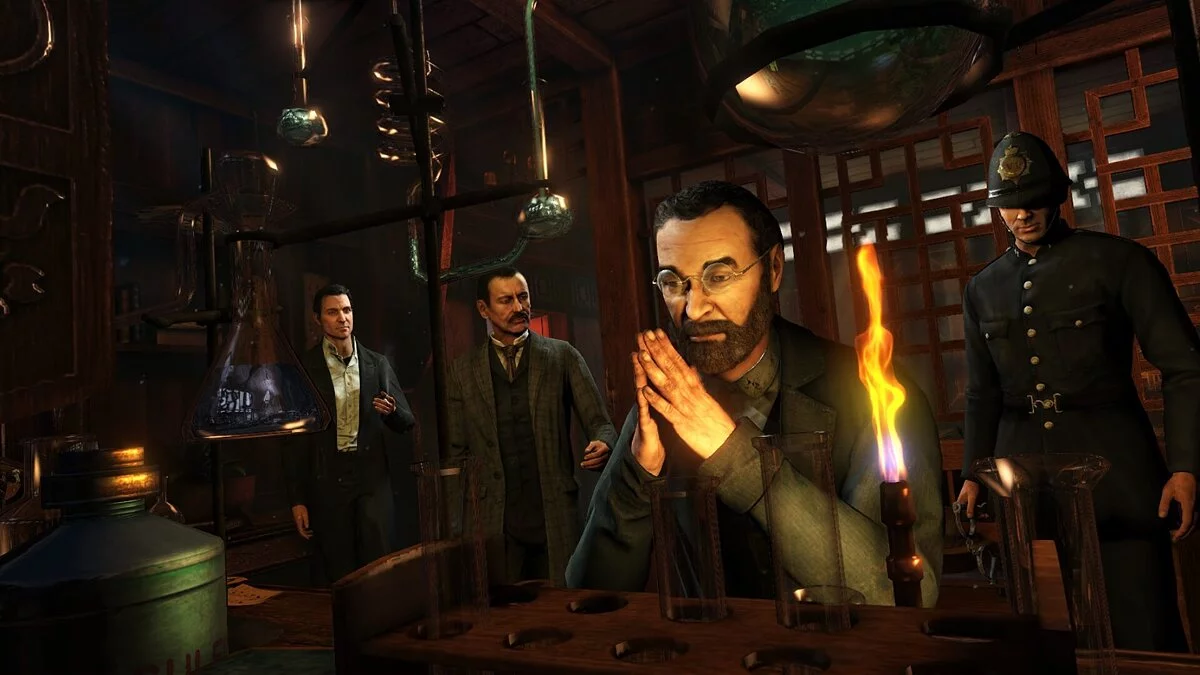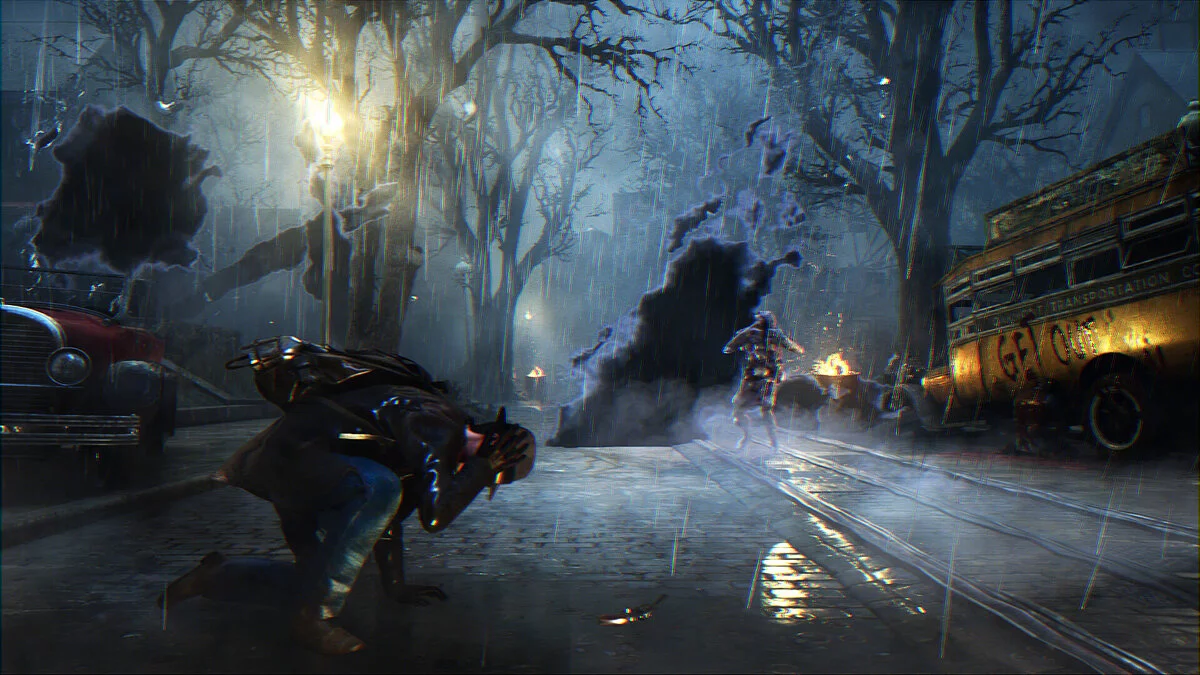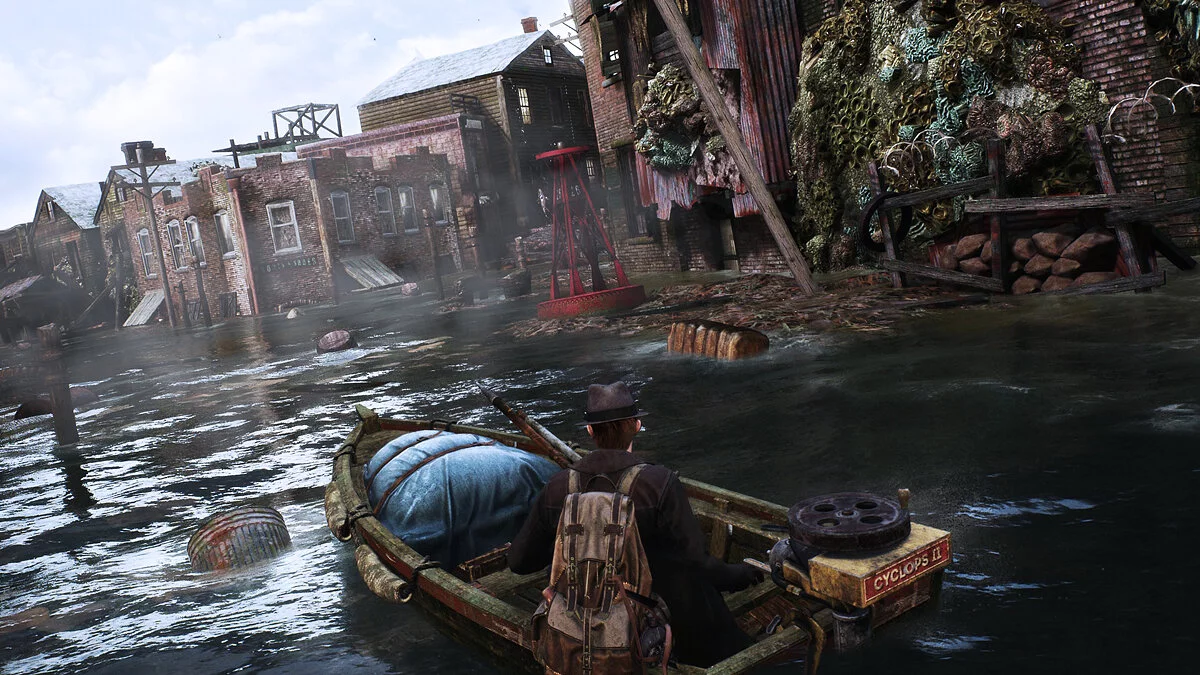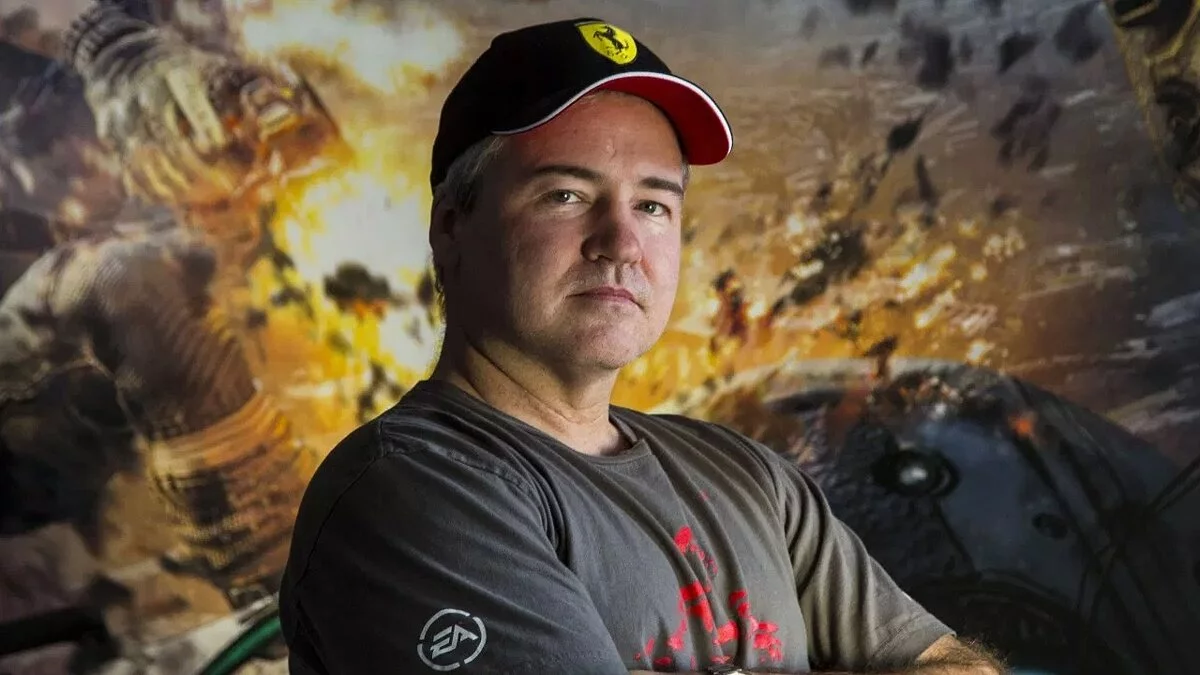TOP 8 conflicts between publishers and developers: Kojima, hacks and trash

The gaming industry is the territory of big money, and where you can hear the rustling of banknotes, conflicts cannot be avoided. Another scandal broke out recently: Ukrainian developers from Frogwares announced that the publishing house Nacon had hacked the game The Sinking City and was selling it on Steam. Read more about this and other conflicts in game development in this collection.
Frogwares vs Nacon. Did the publisher hack the game?
The conflict between Frogwares and Nacon (formerly BigBen Interactive) occurred back in 2019, when The Sinking City was removed from sale in most digital stores, and the developers started a legal battle just to break the contract with the most unpleasant publisher. The thing is that Nacon was first late with payments, then bought the Cyanide studio, which began developing a similar project, and then also demanded the source code of the game from the Ukrainians.
It would seem that during this time passions should have calmed down, and the return of The Sinking City to Steam looked like a good sign. However, the situation was clarified by timely comments from Frogwares, which had nothing to do with this.
According to the Ukrainians, Nacon bought the game from the Gamesplanet store, hacked it, removed all unnecessary logos and signatures, and offered it to gamers. If this is true, then we have witnessed the most unusual piracy in the industry.
How will this scandal end? Still, Nacon denies all accusations and calls itself the legal distributor of The Sinking City on Steam. Only the greatest detective in history could solve such a case.
Frogwares vs Focus Home Interactive. Elementary, Watson!
The conflict with Nacon is not the first in the creative path of Frogwares. The Ukrainians also argued with the previous publisher. The developers collaborated with Focus Home Interactive until 2014, and then moved under the wing of BigBen Interactive. It seemed that the change of publisher was peaceful, and only five years later it became clear that this was not the case.

Frogwares projects began to be removed from digital stores in 2019. It was then that Focus Home lost the rights to publish and distribute several of the studio's creations, but the French refused to transfer game identifiers to the creators in the PS Store, Microsoft Store and Steam, simply removing the games from sale. Creating new profiles to replace old ones is a troublesome and expensive task, and when it comes to games for old consoles, sometimes even impossible.
In the end, the Ukrainians returned the games to stores and stated that in twenty years they had not encountered such inappropriate behavior in the industry. If only they knew what awaited them ahead...
Kojima vs Konami. Phantom pain
The quarrel between Hideo Kojima and Konami became one of the loudest scandals in the history of game development. Little is known about what actually happened, but the puzzle is not difficult to put together.
Metal Gear Solid 5: The Phantom Pain should have been at least brilliant — to match the developer himself. However, such ambitions have a price: both in time and money. For a while, Konami paid for it, but then gave up, quarreled with Hideo and put the unfinished game on sale.
Unfortunately, The Phantom Pain was not the only victim of a domestic quarrel. If the adventures of Big Boss did see the light of day, then Silent Hills had to be canceled altogether. The fans, of course, could not come to terms with such a loss and boycotted the publisher. The hashtag #fuckkonami was the most popular hashtag on Twitter for a while. But we are still waiting for the announcement of the new Silent Hill.
Team Silent vs Konami. Radical Japanese
Today, few people remember that the cancellation of Silent Hill from Kojima is not Konami's first blow to the cult series. In 1999, Team Silent released a real masterpiece, which was followed by equally talented sequels. Fans' reaction to Silent Hill 4: The Room may have been mixed, but no one expected what Konami would do...
After the release of the fourth issue, the publisher suddenly disbanded the team, and at the same time forbade them from doing anything related to Silent Hill: new games, and even remasters. By the standards of 2004, the scandal was terrible, but neither side spoke about its reasons.
Later, one of the artists Silent Hill: Homecoming Kenzie LaMar said that the Japanese corporation wanted something new for the series and decided to cut from the shoulder. It's just that the next games got worse and worse, and we already know about the dead end in which the universe ended up in the end.
Brian Fargo vs. Electronic Arts. How EA lost Fallout
The reputation of Electronic Arts is rather dubious, but you can't deny their ability to make money, as well as their ability to dump «waste material.» A long time ago, Brian Fargo was among the victims of the corporation. In 1988, the developer created the revolutionary Wasteland, but its success was not enough for the game designer.
Fargo decided to get out from under the yoke of the publisher and develop a sequel on his own, but the lawyers with smiles pointed out to him the clause in the contract, according to which all rights to Wasteland remain with the corporation. As a result, EA developed its Wasteland under the title Fountain of Dreams (a rather sluggish thing, I must say), and Brian developed his. This is how Fallout came into being.
Fortunately, 26 years later, Fargo regained the rights to Wasteland, created excellent sequels, but most importantly, was remembered by fans as the creator of the best post-apocalyptic game in history.
Infinity Ward vs. Activision. West and Zampella at gunpoint
Today fans have a controversial attitude towards the Call of Duty series, but there was a time when everyone loved Activision's main cash cow. In Call of Duty's heyday, Vince Zampella and Jason West were in charge of development. Who would have thought, looking at the phenomenal sales of Call of Duty: Modern Warfare 2, that just a year later the main creators of this game would leave the office, accompanied by armed guards?
It is unknown what caused such a rapid conflict. Some say that Activision did not pay the promised bonuses to the developers, others say that the publisher entrusted more and more franchise projects to other studios. However, West and Zampella, for some reason, harbored a grudge against their partners, and Bobby Kotick had to fire them personally. Later, the president of Activision will speak very interestingly about this conflict.
What will you do if you discover that senior employees behind your back are going to violate the terms of the contract, pocket the money paid under the terms of this agreement and take 40 more employees with them? You will fire them
Apparently, talented specialists were negotiating with EA behind the publisher's back. It was Electronic Arts that became home to defectors who created the Respawn Entertainment studio and developed the Titanfall duology and Star Wars Jedi: Fallen Order.
Team Bondi vs. Rockstar Games. Production noir
During its short life, the Team Bondi studio created only one game, which went through all the circles of production hell and ended up in a couple of scandals. But what a game it was!
In L.A. Noire had an atmosphere, truly unique interrogation gameplay mechanics, and good detective stories. Rockstar Games was fascinated by the ambitious ideas of the Australians, and the publisher decided to support the developer with money. Unfortunately, the project was too complex to implement, and the team was not experienced enough. Development turned into a seven-year torment.
In the end, Rockstar Games' patience ran out, and Team Bondi was ordered to stop endless improvements and release the game «as is» — that is, very raw.
Although I must admit that the game turned out to be excellent, and the main mechanics worked as they should, especially if you do not pay attention to the insipid shooting or dull surveillance. Unfortunately, high press ratings did not allow Team Bondi to avoid bankruptcy.
3D Realms vs Take-Two. Duke Nukem is not a foreva
Duke Nukem 3D became one of the most important gaming events of 1996 and a real hit of all time. 3D Realms immediately sat down to create a sequel and... delayed development for 15 years. The game was still released, but other people were finishing it, and the original authors, in addition to all the hardships, also got bogged down in a conflict with the publisher and closed down.
The scandal had been brewing since 2003, when in an interview Take-Two business manager Jeffrey Lapin told reporters that the game would not be released at the end of the year. In response, one of the creators of the legendary Duke, George Broussard, suggested that the publisher «shut up.»
Already in 2009, Take-Two demanded that 3D Realms port the not yet released Duke Nukem Forever to the Xbox 360. In response, the creators asked for full payment for the upcoming work. The parties were unable to reach an agreement, and after some time the publisher accused the developers of failure to fulfill the terms of the contract and suspended them from work. All this developed into many years of litigation.
As a result, Duke Nukem Forever was completed by another studio, and the result was questionable. Alas, all the suffering and scandals were not worth it.
***
As you can see, conflicts between developers and publishers are a common occurrence in the industry, and the people who suffer most from them are ordinary gamers, who, as a result of the conflicts, receive either crude games or nothing at all. What other scandals have we missed? Write in the comments!
What conflict between developer and publisher hurt you the most?
-
TOP 10 largest developer purchases in the gaming industry. The most expensive deals will surprise you!
-
TOP 10 beautiful ladies from gaming worlds with whom you can fall in love, even if you are an ordinary earthling
-
TOP 10 most ambitious fan buildings in games: Eiffel Tower in Valheim, Chicago in Minecraft, airport in Fortnite and much more
-
Top of the funniest, strangest and most ridiculous video game covers: when the designer didn't bother at all
-
TOP 5 failures of the once great studio BioWare









